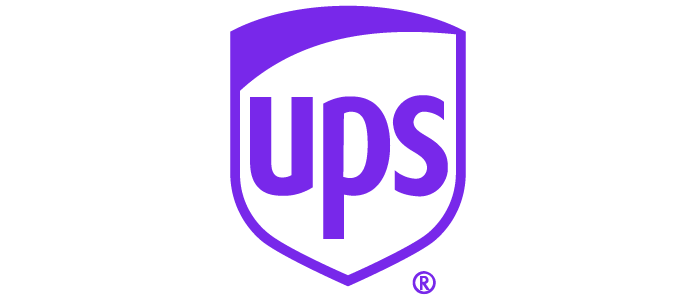We excel as Ecommerce companies, contributing greatly to the success of retail in the U.S. One of the ways Ecommerce is growing in this country is the use of such tools as delivery order software. This tool enables us as Ecommerce retailers to fulfill customer orders in an efficient and expedient manner, turning our skeptical buyers into lifelong customers. It is important to understand the important role of delivery order software with our Ecommerce businesses. The ability to accept, fulfill, ship, and deliver retail orders of all types hinges on the type of delivery order software we use and its relevancy to the business we are engaged in.
Delivery Order Software
Successful Ecommerce companies represent nearly 15% of all retail sales in 2018 or more than half a trillion dollars. U.S. consumers spent $517 billion in 2018 according to the U.S. Department of Commerce. The growth seen in Ecommerce means more and more consumers have come to rely on their computers, smart phones and devices, and other connected peripherals to find, select, and purchase retail items offered online.
When our customers take the time to select an online store and make a purchase, they initiate the supply chain critical to the dispatch delivery of their selected items. An important part of the supply chain for Ecommerce stores is delivery order software. As an Ecommerce retailer, delivery order software has a huge impact on the fulfillment of a customer's order and their overall satisfaction in what we have to offer.
What is delivery order software and why does it have such a prominent role for Ecommerce? A simple definition is that it is the way orders are matched, shipped, tracked, and delivered to customers. More succinctly, delivery order software is triggered when a customer makes a purchase. It seeks to identify items in inventory which have been ordered, place them into distribution for dispatch delivery, and fulfill the order by ensuring it is received by the customer in a timely manner.
There are different types of delivery software available to us as Ecommerce businesses. It is important we understand the differences with the types available and select the software that is appropriate to our Ecommerce business. Free, open source, and paid are the options we have available to us for providing valuable delivery order software to our Ecommerce businesses. Discerning between these options and choosing the one fitting the needs of the company must be considered a priority.
Delivery Software
Delivery software can come in different types. It is important we understand these different types available and the components of this valuable software tool for our Ecommerce business. Delivery software, including online delivery software, open source delivery app, and open source delivery software may also be referred to as ePod or electronic proof of delivery software. It is designed to streamline workflow, beginning from the time a customer submits and pays for an order to when the package is delivered and identified as such by a courier.
It is used at the warehouse or fulfillment area and provides valuable information necessary to complete the delivery of an order. Components common to delivery software include GPS for tracking purposes, basic information about the customer (i.e. delivery address, time and date of delivery, item type, but excluding sensitive data such as form of payment or banking information.
The software provides concise information about the delivery of the package to the customer. It creates a communication link between warehouse personnel and drivers, pushing information from the order software to handhelds drivers use to complete the order. It provides real time information about the delivery, including the driver's location, package whereabouts, and if receipt has been effected by the customer.
Delivery Management System
The reason we consider a delivery management system in our Ecommerce business is because it provides delivery management with live delivery tracking. White label delivery management software, which may be open source delivery management software (which may have been read about in delivery management software blogs) creates greater delivery efficiencies. The data tracked and recorded allows the effective routing of orders for proper fulfillment within the expressed time frame of the customer. We believe that our ability to compete as an Ecommerce business (as compared to traditional brink-and-mortar businesses where customers come in and walk out with their purchases the same day) hinges on our delivery management system.
Costs are reduced as information is relayed from warehouse to couriers quickly and efficiently. This additional efficiency results in lower costs (less money spent) for our costs, increasing their loyalty and improving our chances of retaining their business for time to come. The simplicity in the process of meeting the needs of customers comes with our use of effective delivery management software. The software reduces errors that may come with the manual entry of information necessary to complete a customer's order, including the proper capture of routing information, the matching of the order to items in stock, and the tracking of its delivery.
Delivery Scheduling Software
Our Ecommerce business depends on the ability to match orders and get them on the road efficiently. We use delivery scheduling software, whether it is delivery scheduling software for small business or deliver scheduling software free of charge. This software is essential in the operation of our Ecommerce business as it assists in the management of inventories and facilitates the fulfillment of orders. Delivery scheduling software is more than essential for Ecommerce; it is a necessity!
Inventories we maintain have a short shelf life. This is a necessity for us as we do not have the same storage facilities as large big box chains or other brick-and-mortar businesses. We have to be able to move inventory as at rapid a pace as possible to make room for new products and fulfill customer orders as reported. Delivery scheduling software plays the role of facilitator in our mission of reducing inventories and lowering the shelf life of our products. This creates an efficient, seamless, and effective process for selling online and operating an Ecommerce business that can deliver on its customer promises.
Same Day Delivery Software
In the bad old days, the promise of delivering a customer order in 24 hours or less was next to possible. The advent of large fulfillment centers assisted delivery ticket software and same day delivery software has created an expectation for same day delivery. Customers are willing to pay for the opportunity to order our products at 10:00 a.m. and have them on their doorstep at 5:00 p.m. This has become a reality in our time with the creation of delivery software with the capability to track and identify the location of a customer's order and place it in a delivery vehicle quickly and seamlessly.
What was once impossible for our customers, particularly those in the urban areas, has indeed become more and more their reality and standard expectation. Same day delivery software makes possible the fulfillment of our customer's expectations – delivery of their packages in a timely and expedient fashion. It would be hard to imagine a world where the possibility of making customer's happy through rapid delivery of their purchases did not exist. It is equally difficult to understand how we would choose not to have in place an appropriate software solution designed to quickly, safely, and efficiently deliver customer packages.
Last Mile Delivery Software
It is said the first step is the hardest, which is true in business. The last mile of the delivery process is just as difficult and helps establish our credibility with customers. The process we used to select last mile delivery software for the goods we offer is a critical one which must be taken seriously.
There are many things that happens to shipments from time of order to time of delivery. The last mile is an important last step in the process. Think for example if were a water delivery Ecommerce business responsible for providing bottled water for disaster relief efforts. The use of water delivery management software is a necessity for ensuring things run as smoothly as possible.
The software can track and detect any of the problems with inventory, including damage to packages. It can ensure the location being delivered to is correct, especially with something as critical as disaster relief supplies. Now this is a dramatic example but representative of how you should look at the important role the right software plays in helping our Ecommerce business deliver on its promises to customers in completing that last mile of delivering to our customers the retails items they purchased.
Free Delivery Software
It is all too tempting to accept an offer for free software for small business, including free fleet management software open source. It may also include offers for open source web based fleet management software as well as an open source food delivery platform for Ecommerce companies involved in the delivery of food to customers. Certainly, if asked, we would prefer offers of free stuff over those that we have to pay some type of one-time licensing or ongoing subscription fee. The price tag is certainly tempting but may prove a pitfall for our businesses.
The importance of our delivery order software is the last mile of fulfillment. It is certainly the most critical point, the one which determines the longevity of the customer relationship. Software that is free or obtained open source may compete initially with paid software but at what cost? Is there dedicated customer support, troubleshooting, live assistance, and other supports necessary when issues arise (as they do from time to time)? Does the software we choose (other than paid or subscription-based) to meet our delivery needs protect the business from unwanted intrusions including data breaches, spyware, malware, and the potential for financial disaster to the Ecommerce business?
We must take care in our decision-making process to carefully select software which complements our supply chain needs. Sacrificing safety and quality for price could result in a costly mistake requiring years to rectify to re-establish our valuable customer relationships.




